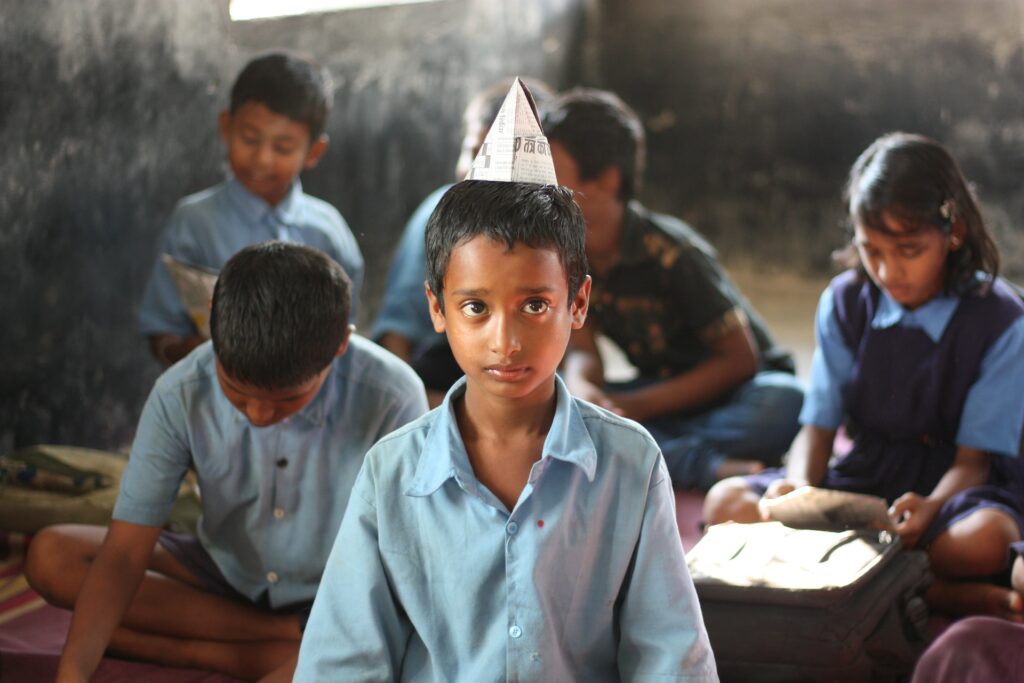
We all have the ability think and create from the moment we are born as humans. We start to build our cognitive skills at a young age, and as we study and mature, we get better at critical and creative thinking. It is important to keep in mind, too, that not every child has the same chances and access to materials that allow them to acquire these talents. In this post, we’ll talk about the value of critical and creative thinking in kids and how society as a whole can support the development of these abilities.
The capacity for methodical, logical analysis, evaluation, and interpretation of information is known as critical thinking. Children can use this talent to make educated judgements, work through issues, and judge the reliability of arguments and information. In contrast, creative thinking entails the creation of novel, inventive ideas, concepts, and solutions. It is the capacity to think creatively and develop original viewpoints and solutions to issues.
The development of children’s critical and creative thinking abilities is crucial for their academic achievement and overall development. Children who use critical thinking are better able to comprehend their surroundings and make defensible decisions that are supported by logic and evidence. Also, it aids in their ability to critically examine and assess information, allowing them to spot assumptions, biases, and evaluate the reliability of sources. Contrarily, creative thinking promotes kids to investigate novel concepts and avenues while assisting in the improvement of their problem-solving abilities.
Also, developing children’s critical and creative thinking abilities is essential for their future success in the job. Employers nowadays are searching for people who have the capacity for critical and creative thought, excellent communication, and teamwork. Children who acquire these talents at a young age are therefore more likely to succeed in their jobs and contribute significantly to society.
So how can parents and educators help children develop critical and creative thinking skills? Here are some strategies that can be employed:
- Encourage Curiosity: Children have an innate curiosity, which parents and educators can develop by enticing them to enquire about and investigate their surroundings. Additionally, they can expose kids to a range of chances and experiences that stretch their perspectives and inspire original thought.
- Provide Opportunities for Problem-Solving: Using puzzles or games that call for critical thinking and problem-solving abilities, parents and educators can provide kids with the chance to solve difficulties on their own.
- Teach Reflective Thinking: Analysing, evaluating, and learning from experiences are all parts of reflective thinking. Children can be encouraged by their parents and teachers to think back on their experiences, ask questions, and pinpoint areas where they might get better.
- Foster a Growth Mindset: A growth mindset is the idea that one can improve one’s skills by working hard and being committed. By rewarding perseverance and hard work over genius or talent, parents and teachers can help develop this mindset in their children.
- Encourage Collaboration: Children are encouraged to share ideas and solve issues together in collaborative learning environments. By encouraging group projects and activities that call for cooperation and teamwork, parents and educators may foster these settings.
Concluding Thoughts
Children’s academic achievement and personal development depend on their ability to think critically and creatively. They support youngsters’ decision-making, problem-solving, and evaluation of the reliability of arguments and data. Also, they are essential for kids’ future success in the workforce. By encouraging curiosity, offering chances for problem-solving, teaching learning strategies, promoting a growth mindset, and encouraging collaboration, parents and educators can aid children in the development of these talents. By fostering these abilities, we may assist kids in developing into capable, self-assured thinkers who are ready to flourish in the real world.
